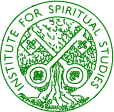
|
|
John Wesley and the Book of Common Prayer |
Seminar delivered by The Revd Dr Karen Westerfield-Tucker on May 13, 2003The Revd Dr Karen Westerfield-Tucker gave the 2003 Austin James Lecture at the Institute for Spiritual Studies at St Peter's, on Tuesday the 13th of May. The lecture is held by the Australian Academy of Liturgy. Dr Westerfield-Tucker is Associate Professor of Christian Worship at the School of Divinity, Duke University, USA. She reminded us that, for decades, John Wesley tried to keep the Methodist societies of the 18th century from breaking with the Church of England. But in 1784 he was moved to invent 'The Sunday Service of the Methodists in North America' for the special use of the Methodists in the new United States. The book was his own revision of 'The Book of Common Prayer' (BCP) and was typical, in one sense, of the hundreds of personal and group revisions of that Book during the period. It was a kind of hobby of the 18th century. One of Wesley's objectives in this particular 'Sunday Service' was to put the 'common' back into Common Prayer. 'The Book of Common Prayer' was a unified collection of liturgies that had brought back into focus the practice of the early apostolic church. Politically it was intended to unify the nation, all people using the one text. However competing Anglican desires (Catholic versus Protestant) led to inevitable differences in use. The desire for a national agreed usage persisted right up to John Wesley's time. He proposed an alternative to the current practice, and for those penalised in their religious lives by the Acts of Uniformity, which stipulated the sole use of the BCP. Rites and ceremonies are meaningful and worthwhile so long as they are subservient to their ultimate purpose in the religious life. Variety of practice is inevitable; common practice should prevail. Ultimately though, for John Wesley conformity was essential. Wesley's avowed belief in the unity of the English church was maintained throughout his life as a vision of a koinonia of all England. John Wesley resolved to revise the BCP so that the essentials of the Christian religion were kept and enhanced. Changes were made throughout, including rubrics for extempore prayer. Many familiar sections, like Private Baptism and the Visitation of the Sick, were dropped. There was no more giving away the bride. He took out the Nicene Creed, leaving only the Apostles' Creed in place. Some of his changes were unique, also offensive to many both Anglican and Methodist, even his own brother Charles. The book went through because, as Dr Westerfield-Tucker wryly remarked, John Wesley was his own imprimatur. By this rationalisation of the BCP text, Wesley believed he emphasised the essentials that defined the koinonia of the church.. All of which has bearing on church life today. Common prayer should be the start of unity. Dr Westerfield-Tucker asked, why not use John Wesley's principles as the start for our own questions about common prayer today? She then defined those principles. Common prayer is the expression in and of "One Spirit, one hope, one Lord, one faith, one God and Father of all." Wesley wished to lift up and perpetuate the catholic faith known from Scripture and handed down in the first three centuries, the common fundamental principles of Christianity. Common prayer may be achieved when the essentials are distinguished from the non-essentials of faith. Inner religion is central. It is the religion of the heart, that consists not in outward actions but in the knowledge and love of God. Worship is worship in Spirit and in truth. Wesley was after the affinities of worship, recognising that diversity (linguistic, cultural, traditional) is inevitable. It's the affinities that are important, not the minor dissimilarities and differences. He calls us to account; he asks, what are the essentials? Common prayer does not mean liturgical uniformity, for such will never be possible. Where there is variety there will be diversity. Diversity has been there from the start. Mutual respect should be evident in the journey toward common prayer. As Dr Westerfield-Tucker said firmly, we must face the fact that there will never be a single rite. Common prayer should not mean a single, inflexible design for prayer, though the forms it takes may lead to a commonly recognised pattern or order. Common prayer is tied to the quest for unity. Prayer in common can bring deeper recognition of the sharing of one Lord, one faith, one baptism. Although 'The Sunday Service of the Methodists in North America' did not survive in the United States, the principles behind it did. They animate much in the public and private worship practice of Americans to this day, and not just amongst the Methodists.
This site is hosted by St Peter's Eastern Hill,
Melbourne, Australia. |